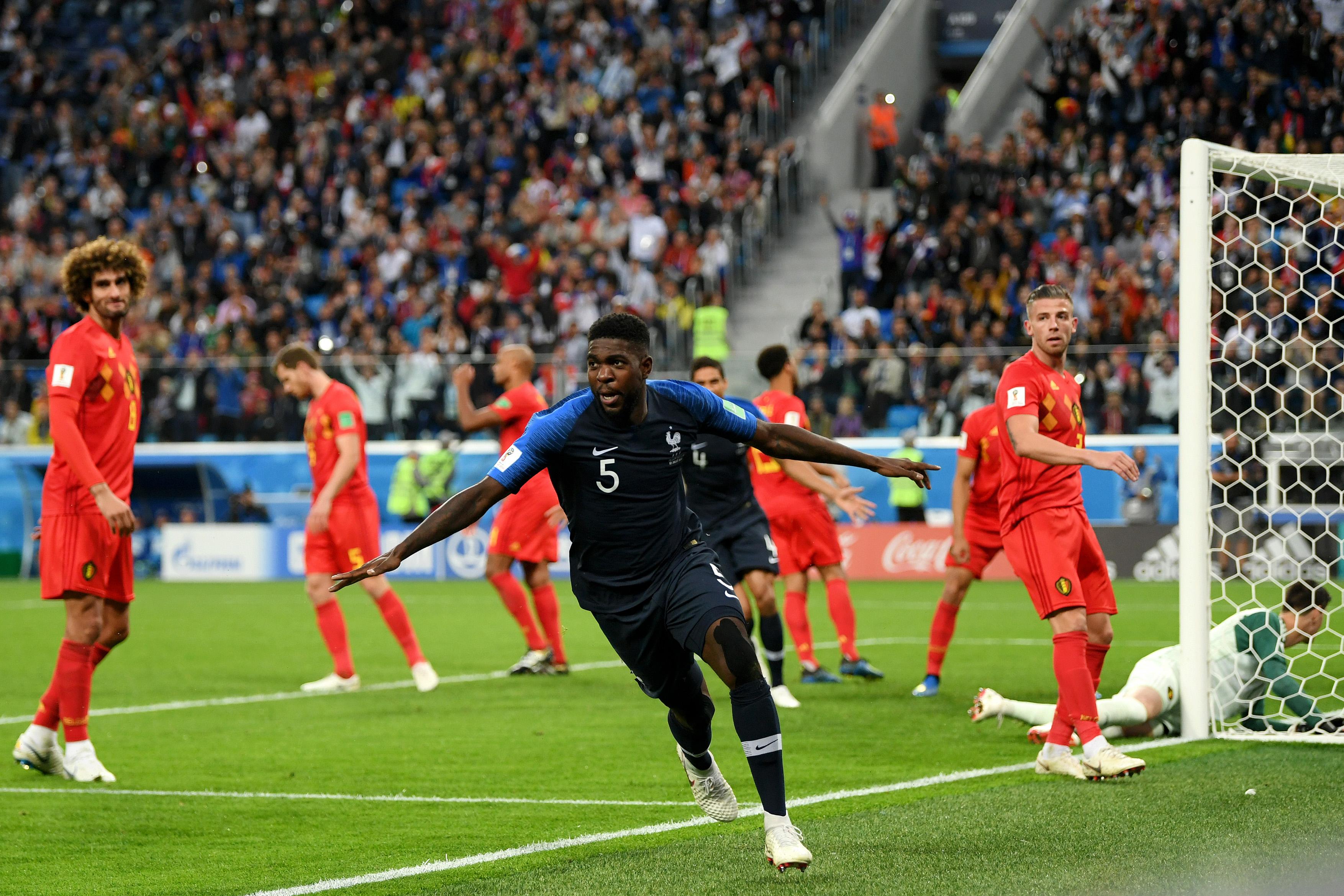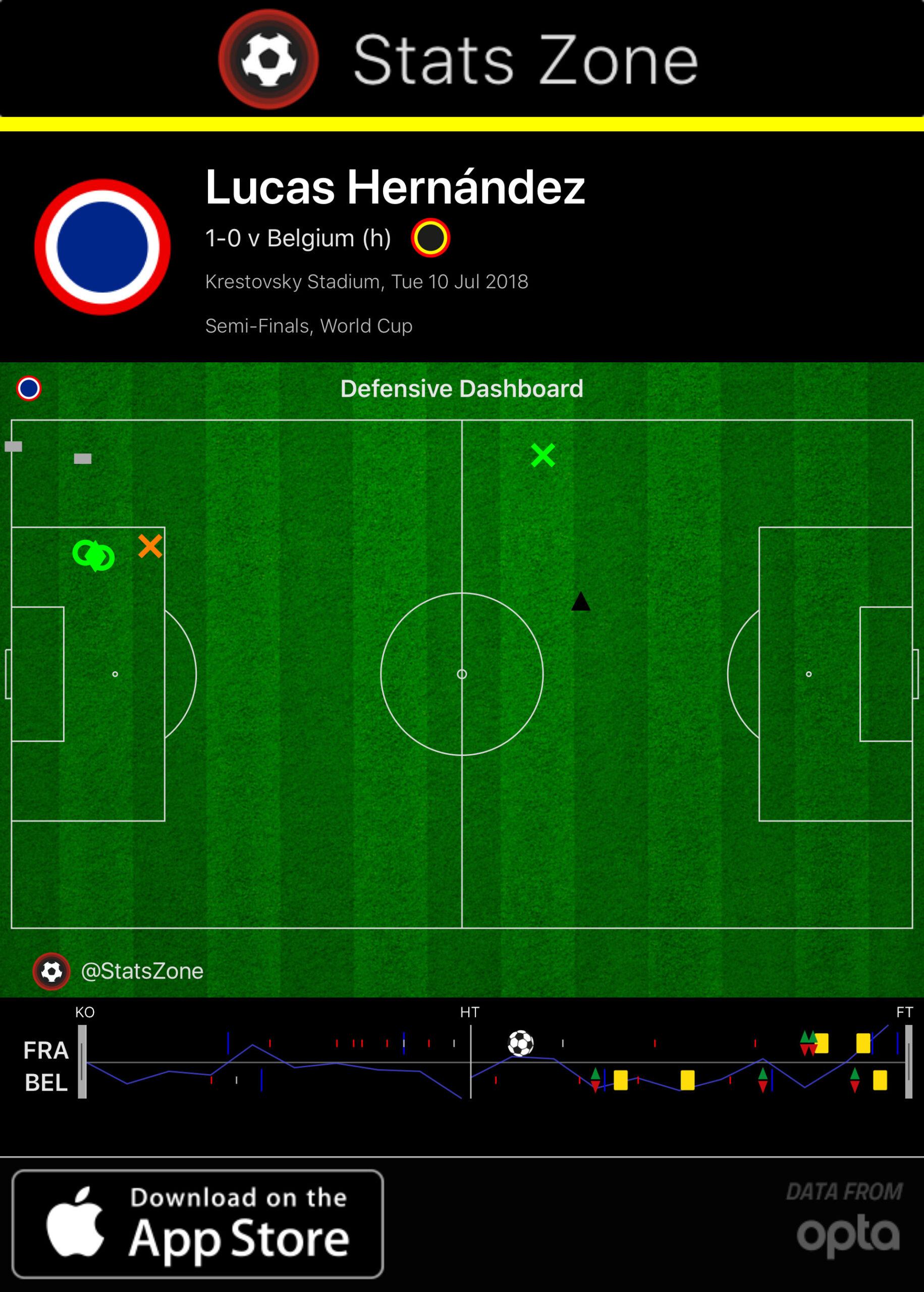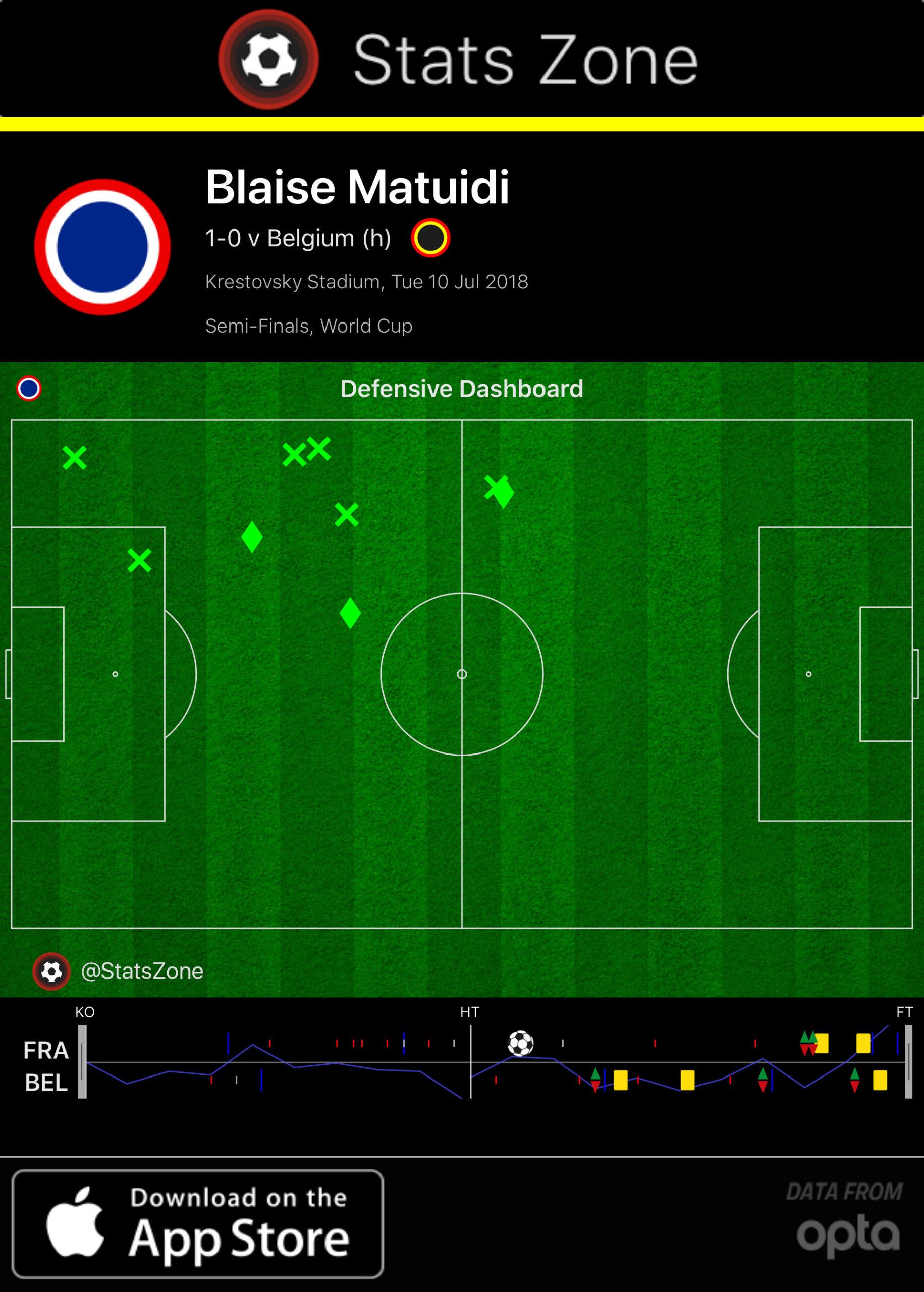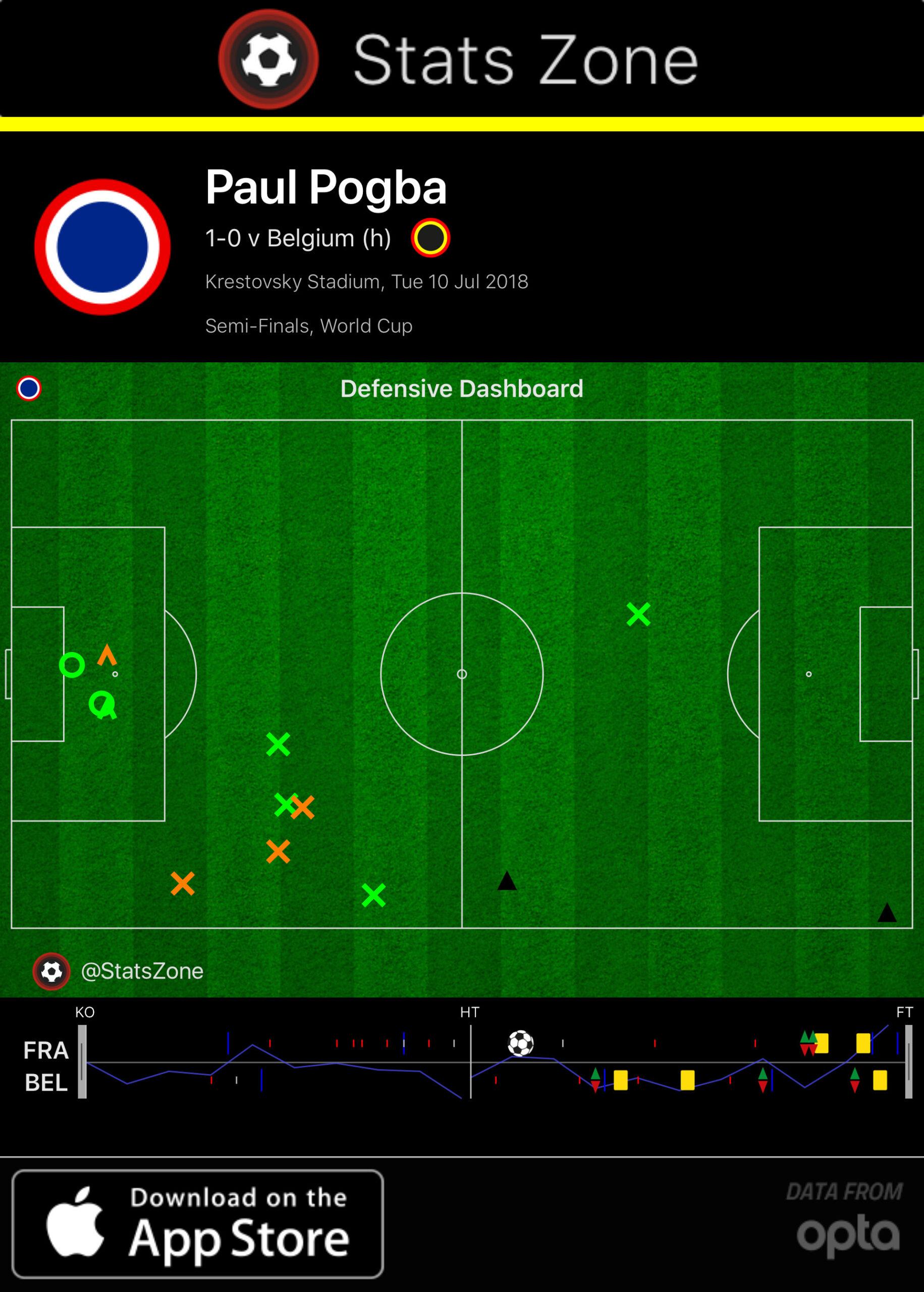
For a game defined by the stalwart play of France’s defensive unit, it was fitting that the goal that sent Les Bleus back to the World Cup final for the first time since 2006 was scored by a center back. Samuel Umtiti, one of the key pieces of a Barcelona back line that allowed the second-fewest goals in La Liga last season, gave his country what would prove to be an insurmountable lead in the 51st minute when he slipped underneath Belgium’s Marouane Fellaini, caught the end of an Antoine Griezmann corner kick at the near post, and headed it past Thibaut Courtois to put France up 1-0.
As Nico Morales outlined for The Ringer on Monday, center backs have been key pieces of the attacks of France, Belgium, and England at the World Cup. Umtiti’s goal marked the third consecutive knockout game that saw a French defender find the back of the net: First, there was Benjamin Pavard’s physics-defying volley against Argentina in the round of 16. Then Raphaël Varane opened the scoring against Uruguay in the semifinal with a goal off another Griezmann set piece. And when the French defensemen weren’t busy adding tallies to the score sheet, they were making sure Belgium didn’t do the same.
Coming into Tuesday’s semifinal match, Belgium were averaging 17.6 shots per game—good for third most in the tournament—with 5.8 of those shots coming on target. Against France, they sent just nine shots toward the net, only three of which troubled Hugo Lloris. The Spurs keeper’s clean sheet—his second in as many games, and his fourth in six matches—was made more impressive by the fact that Belgium held 64 percent possession and completed 253 more passes than their European foes. And while Lloris made a number of big saves early on to keep the game level, the real key to France’s victory was their ability to shut down Belgium’s dominant counterattack.
All tournament, Belgium had found success using quick strikes to catch opponents out of position. The approach highlighted the talents of their many superstars, like Romelu Lukaku, Kevin De Bruyne, and Eden Hazard, whose free-flowing movements and precise timing struck fear into many a fullback’s heart. It was the same strategy the Red Devils used to go undefeated in the group stage, then to pull off a stunning comeback against Japan, and finally to top tournament favorites Brazil en route to the semis. But in arguably the biggest game in Belgium’s history, it fell short.
France’s Lucas Hernández, Blaise Matuidi, and Paul Pogba were essential to keeping the Belgium break at bay, with each collecting vital tackles near the touchlines, forcing the Red Devils to try to build through the middle. And a wall formed by Les Bleus’ center backs and N’Golo Kanté shut down Belgium’s passing lanes, leaving them without any window to attack.

Only once in Belgium’s previous five games—in their opener against a listless Panama team making their World Cup debut—did they hold more than 60 percent possession. This team wasn’t built to control the ball and wear teams down with meticulous short passing. Belgium are built for the long ball; for the beautifully weighted crosses that reverse the field, and the immaculate through balls that perfectly find a streaking winger’s foot. Against every other opponent they faced this summer, they were able to use their rapid-response team to flood the opponent’s net with goals. Unfortunately for them, when it mattered most, the well ran dry.

